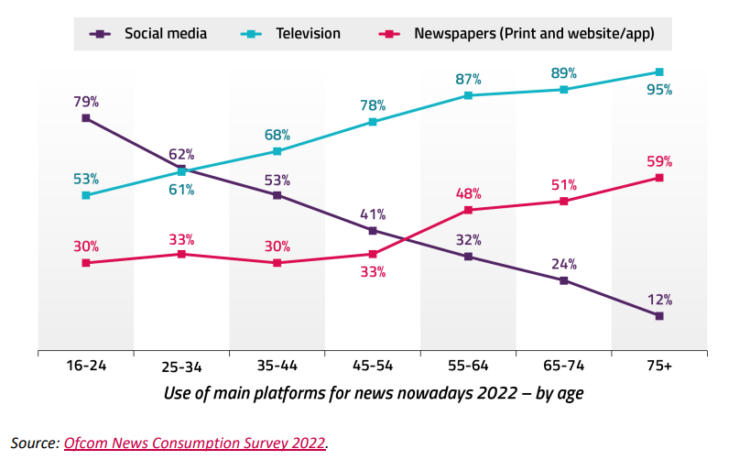Ofcom considers online media regulations over transparency and user choice


Ofcom is weighing a wide swath of additional regulatory measures for online media.
The UK’s broadcast and online platforms regulator is considering whether and how to audit social media companies, and other online news media intermediaries such as search engines and news aggregators—most of which are based in the US—to be more transparent with the government over how their algorithms for showing news to users work.
Another option under consideration includes forcing online intermediaries to provide users more choice about how their news service and recommendation system operates.
A further, “more intrusive” approach being considered is the creation of statutory obligations for online intermediaries to put in place measures to “support the visibility and discovery of a range of high quality journalism on [their platforms].”
However, Ofcom notes that any such policy would need to be carefully designed so as to proportionately remedy the “identified harms to media plurality” and to avoid unintended consequences for the industry.
The regulator argues that changes to the online media landscape in recent years support the need for stricter measures.
“Traditional approaches to measuring media plurality will become less effective as the role intermediaries play becomes ever more significant,” reads Ofcom’s Discussion Document. “We will need to amend our approach to ensure we get a more accurate picture of the different sources people use for news.
“Our preliminary view is that there may be a case for new remedies – including tools to provide greater transparency over the choices intermediaries make and to give people more choice about the news we see—to ensure we continue to secure the benefits of the UK’s diverse and vibrant news media.”
The regulator notes that there has been a shift in how people access news away from traditional media providers and towards online intermediaries and news aggregators.
In the its latest news consumption survey, one in seven (14%) Brits reported only using online services for news, and four in five (79%) 18-24 year-olds say they use social media for news. Facebook has become the country’s third most popular news source overall, behind the BBC and ITV.

Commenting on the research in today’s Discussion Document, a representative from Ofcom explained: “Our own research suggests that people who use social media most often for news are less likely to correctly identify important factual information, feel more antipathy towards people who hold different political views and are less trusting of democratic institutions and the news media.”
Ofcom ultimately does not decide on new regulatory legislation, but recommends actions to the UK government. It plans to engage with key stakeholders “over the coming months” to “develop and inform” its regulatory approach to online media plurality, and may bring forward recommendations for regulatory action “by 2024”.
